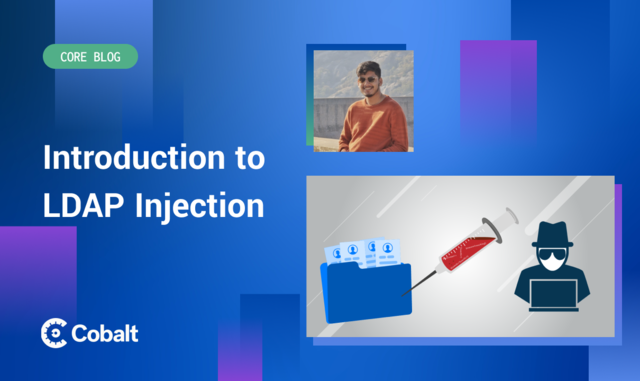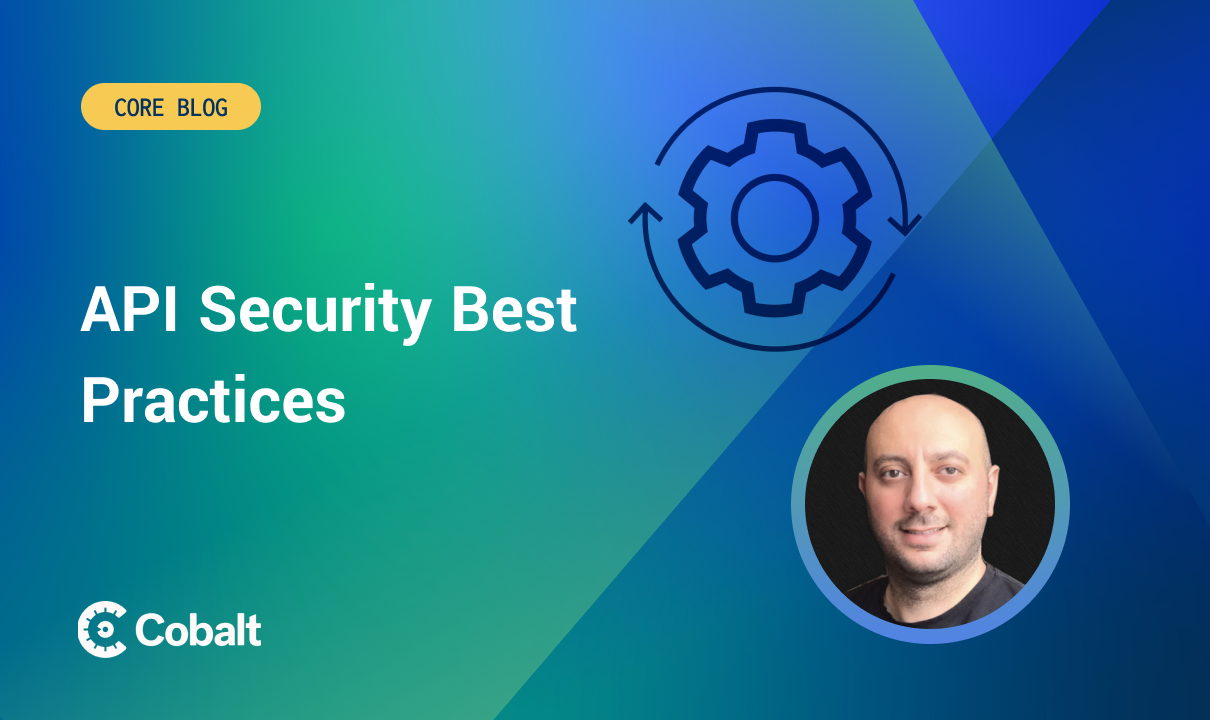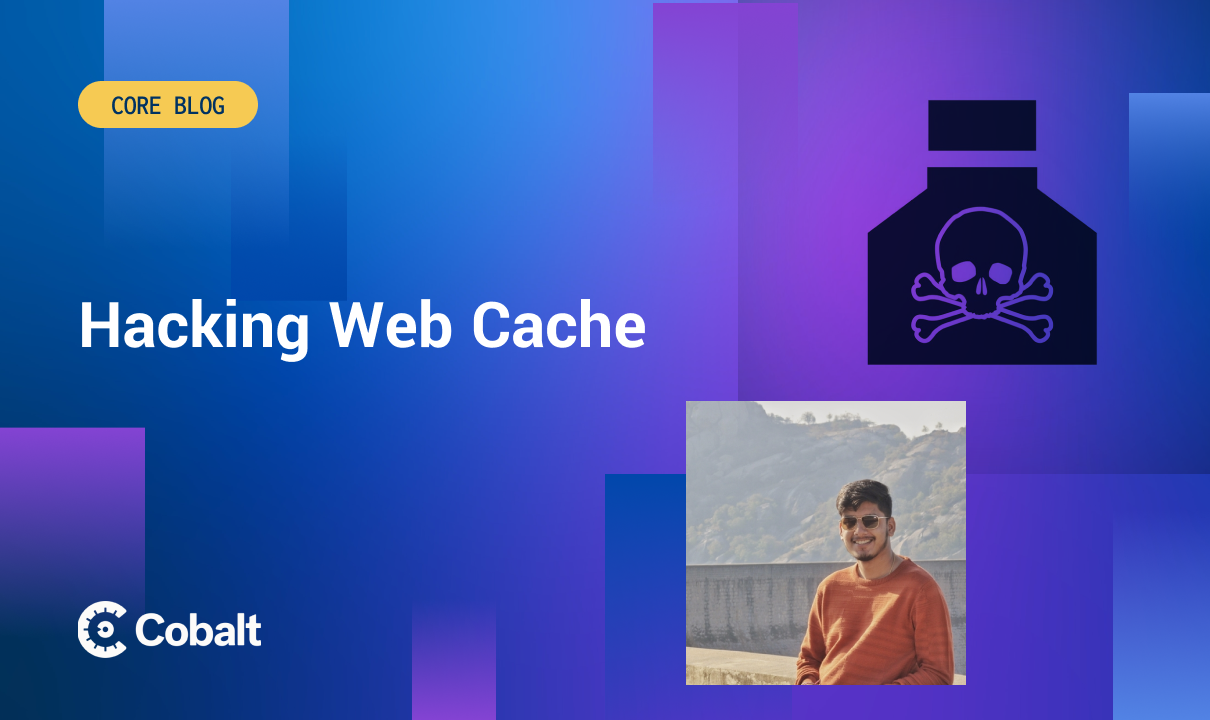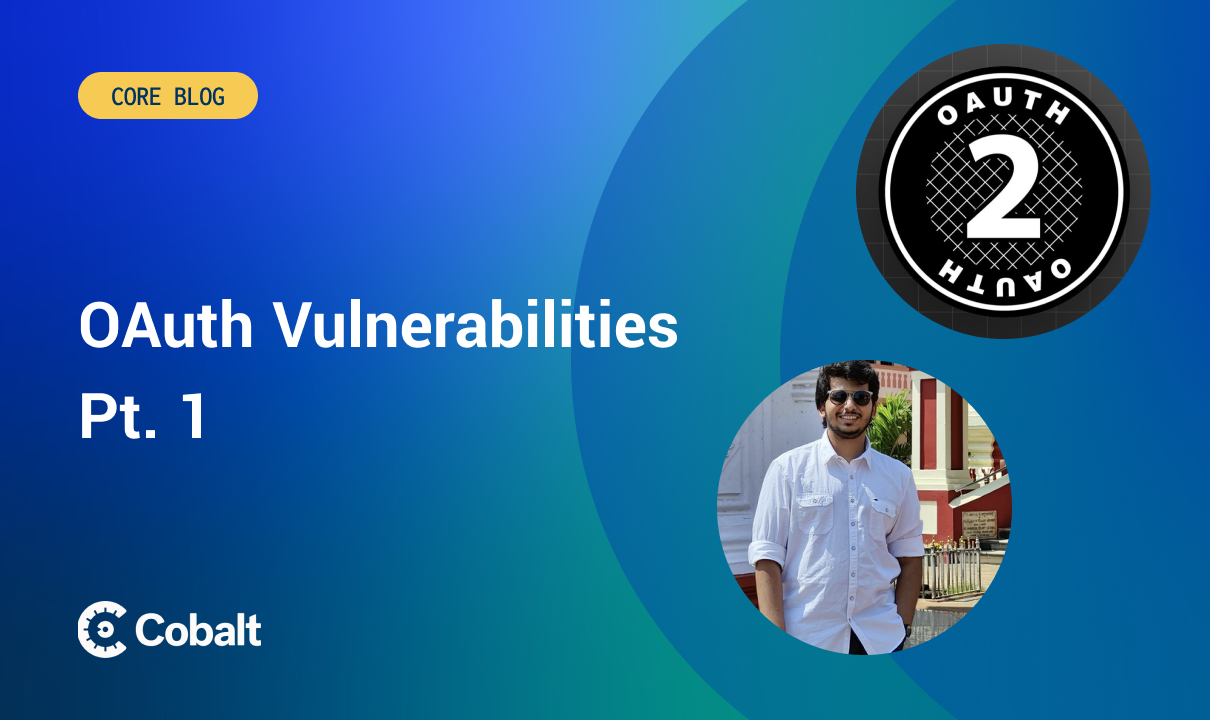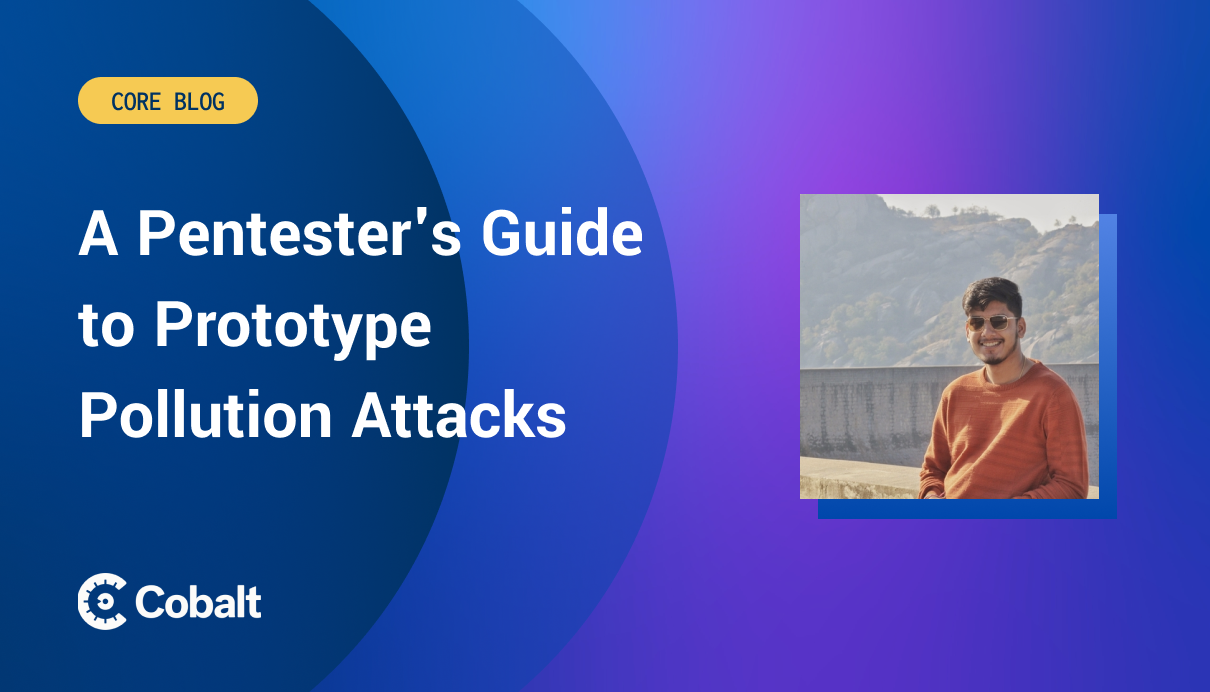- platform
-
solutions
-
-
pentesting
-
what is a pentest
 Learn pentesting basics and PtaaS benefits
Learn pentesting basics and PtaaS benefits -
pentest services
 Get trusted pentest services from Cobalt
Get trusted pentest services from Cobalt -
agile pentesting
 Targeted pentesting for new releases and agile teams
Targeted pentesting for new releases and agile teams
-
-
-
other cobalt offerings
-
offensive security
 Minimize risk efficiently and effectively
Minimize risk efficiently and effectively -
cybersecurity services
 Improve your overall security posture
Improve your overall security posture -
compliance
 Comprehensive pentesting for compliance
Comprehensive pentesting for compliance
-
-
-
use cases
-
enterprise solutions
 Offensive security solutions for enterprises
Offensive security solutions for enterprises -
pentesting for security teams
 Security benefits of a PtaaS platform
Security benefits of a PtaaS platform -
pentesting for developers
 Developer benefits of a PtaaS platform
Developer benefits of a PtaaS platform
-
-
- pricing
-
company
-
-
about
 Who we are
Who we are -
leadership
 The minds driving our mission forward
The minds driving our mission forward -
customers
 Real customer stories straight from the source
Real customer stories straight from the source -
careers
 Redefine and reimagine modern pentesting with us
Redefine and reimagine modern pentesting with us
-
about
-
-
partners
 Explore Cobalt's partner network
Explore Cobalt's partner network -
press
 Read the latest news at Cobalt
Read the latest news at Cobalt -
become a pentester
 An elite community of best-in-class pentesters
An elite community of best-in-class pentesters -
contact
 Talk to one of our team members
Talk to one of our team members
-
partners
-
-
GigaOm Radar Report
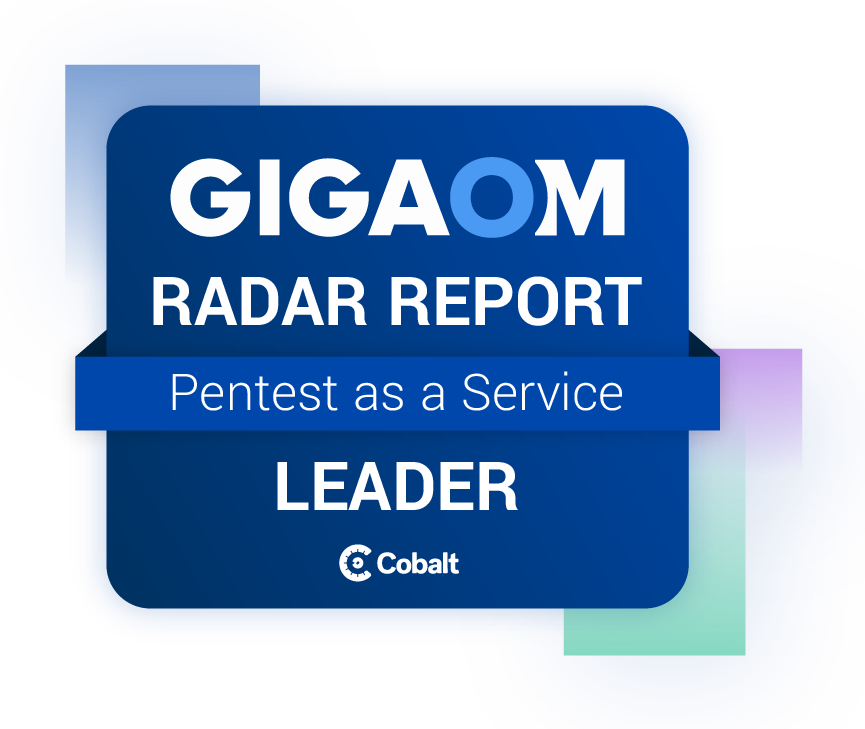 FeaturedDownload
FeaturedDownload
-
GigaOm Radar Report
-
-
resources
-
-
resource library
 Rethinking application security
Rethinking application security -
blog
 Insights for security leaders, pentesters, and developers
Insights for security leaders, pentesters, and developers -
events and webinars
 Explore thought-provoking security topics
Explore thought-provoking security topics -
infoSec podcast
 Explore the stories of real people in the security sector
Explore the stories of real people in the security sector
-
resource library
-
-
faq
 Find answers to the frequently asked questions
Find answers to the frequently asked questions -
docs
 Dive into our documentation to explore PtaaS
Dive into our documentation to explore PtaaS -
refer a friend
 Refer a friend & earn
Refer a friend & earn
-
faq
-
-
The State of Pentesting Report 2023
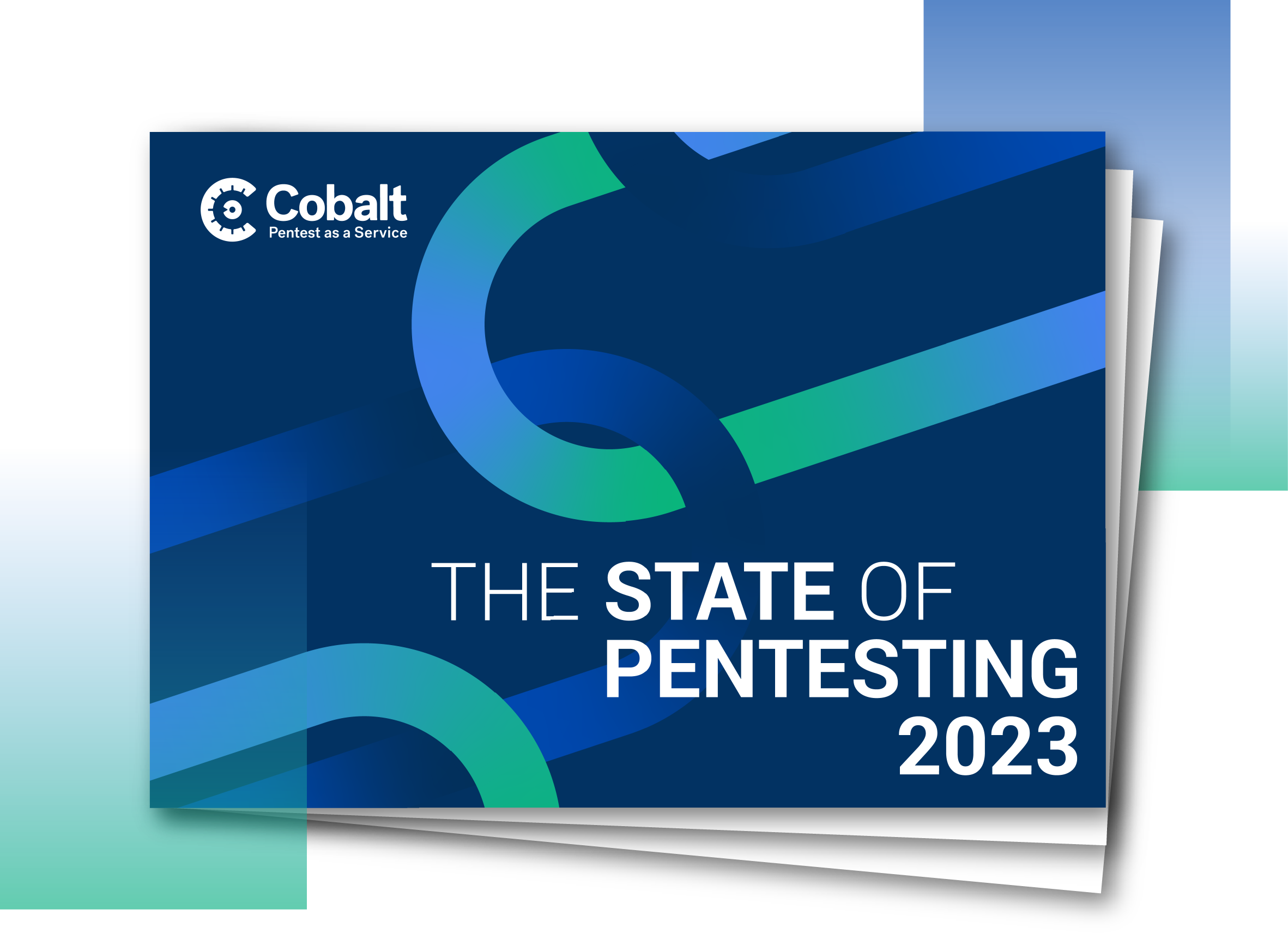 FeaturedDownload
FeaturedDownload
-
The State of Pentesting Report 2023
-
- login
- get started
- faq
Demo
Learn how Cobalt’s Pentest as a Service (PtaaS) model makes you faster, better, and more efficient.
- platform
-
solutions
-
-
pentesting
-
what is a pentest
 Learn pentesting basics and PtaaS benefits
Learn pentesting basics and PtaaS benefits -
pentest services
 Get trusted pentest services from Cobalt
Get trusted pentest services from Cobalt -
agile pentesting
 Targeted pentesting for new releases and agile teams
Targeted pentesting for new releases and agile teams
-
-
-
other cobalt offerings
-
offensive security
 Minimize risk efficiently and effectively
Minimize risk efficiently and effectively -
cybersecurity services
 Improve your overall security posture
Improve your overall security posture -
compliance
 Comprehensive pentesting for compliance
Comprehensive pentesting for compliance
-
-
-
use cases
-
enterprise solutions
 Offensive security solutions for enterprises
Offensive security solutions for enterprises -
pentesting for security teams
 Security benefits of a PtaaS platform
Security benefits of a PtaaS platform -
pentesting for developers
 Developer benefits of a PtaaS platform
Developer benefits of a PtaaS platform
-
-
- pricing
-
company
-
-
about
 Who we are
Who we are -
leadership
 The minds driving our mission forward
The minds driving our mission forward -
customers
 Real customer stories straight from the source
Real customer stories straight from the source -
careers
 Redefine and reimagine modern pentesting with us
Redefine and reimagine modern pentesting with us
-
about
-
-
partners
 Explore Cobalt's partner network
Explore Cobalt's partner network -
press
 Read the latest news at Cobalt
Read the latest news at Cobalt -
become a pentester
 An elite community of best-in-class pentesters
An elite community of best-in-class pentesters -
contact
 Talk to one of our team members
Talk to one of our team members
-
partners
-
-
GigaOm Radar Report
 FeaturedDownload
FeaturedDownload
-
GigaOm Radar Report
-
-
resources
-
-
resource library
 Rethinking application security
Rethinking application security -
blog
 Insights for security leaders, pentesters, and developers
Insights for security leaders, pentesters, and developers -
events and webinars
 Explore thought-provoking security topics
Explore thought-provoking security topics -
infoSec podcast
 Explore the stories of real people in the security sector
Explore the stories of real people in the security sector
-
resource library
-
-
faq
 Find answers to the frequently asked questions
Find answers to the frequently asked questions -
docs
 Dive into our documentation to explore PtaaS
Dive into our documentation to explore PtaaS -
refer a friend
 Refer a friend & earn
Refer a friend & earn
-
faq
-
-
The State of Pentesting Report 2023
 FeaturedDownload
FeaturedDownload
-
The State of Pentesting Report 2023
-
- login
- get started
- faq
Demo

